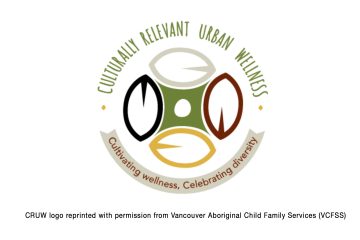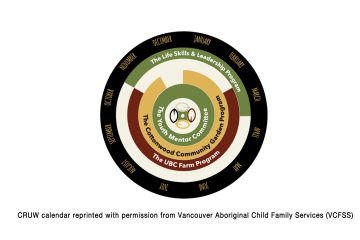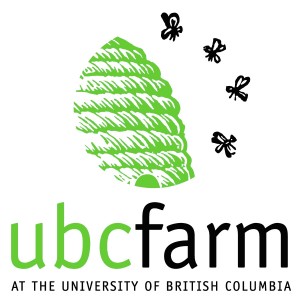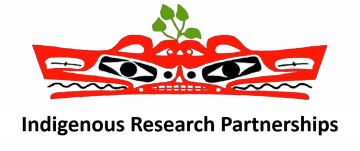
The Culturally Relevant Urban Wellness Program (CRUW) was developed in 2011 by a community partnership led by the Vancouver Aboriginal Child and Family Services Society (VACFSS) interested in promoting the use of green space as a source of wellness and concrete skill development for vulnerable youth. The program is grounded in the concept of food as medicine, and the Indigenous perspective that we derive wellness and community from relationship and interaction with land and territory.
CRUW is based at VACFSS and operates in partnership with the Centre for Sustainable Food Systems at the University of British Columbia (UBC) Farm, the Indigenous Research Partnerships at the Faculty of Land and Food Systems at UBC, and Pacific Community Resources Society (PCRS). The program brings Aboriginal youth in foster care at VACFSS together with other diverse youth through the LIFT program at PCRS. The CRUW program has four distinct program streams:
- The UBC Farm Program
- The Life Skills & Leadership Program
- The Cottonwood Community Garden Program
- The Youth Mentor Committee
Together these programming streams provide a multiple-year trajectory of engagement for as many as 100 youths annually, working towards four program objectives:
- Honouring Our Diversity, with an emphasis on applying ancestral Aboriginal knowledge and practice to contemporary urban living;
- Holistic and Sustainable Urban Wellness, with an emphasis on food security, food sovereignty, and empowering youth to access green space in their communities as a source of wellness and concrete skill development;
- Emotional and Cultural Competence, with an emphasis on breaking down stereotypes, bullying and discrimination; and
- Youth Leadership, with an emphasis on promoting self-esteem, positive identity formation, and skills and capacities to support the transition into independent living.
The UBC Farm program
The UBC Farm program is the gateway to CRUW. Developed in 2011, it was the first program stream to be developed and runs from March to October, accepting up to 30 participants and 4 youth mentors annually.
Participants in the UBC Farm Program attend 16 sessions over eight months with Aboriginal Elders and Knowledge-keepers, staff, volunteers and guest instructors. Program sessions are held at the Indigenous Health Garden at the UBC Farm every second Saturday from 9am-4pm. Participants are assigned to one of 3 groups and remain in that group over the course of the program. Each group rotates through 3 activity blocks each session: 1 in the garden block; 1 workshop led by a guest instructor; and 1 block of goal setting and reflective debrief within their group.
Each group documents their journey over the course of the program using an iPad. This provides opportunities for the youth to set goals individually, and to also set some objectives for the growth and development of their group. Through gardening, food preservation activities such as canning and smoking salmon, making medicinal teas and salves from plants at the UBC Farm, and a variety of instruction workshops, youth participants develop a wide range of skills and competencies related to the four CRUW program objectives above.
The Life Skills & Leadership Program
All graduates of the UBC Farm Program interested in returning for a second year as paid youth mentors are invited to apply for the Life Skills and Leadership Program. This program accepts 10 youth annually and runs between November and March. At the end of the program, 4 graduates are selected to be mentors in the UBC program the following year.
The Life Skills program consists of 4 youth engagement and planning sessions in November and December, and 10 program sessions over January, February and March.
Five of the program sessions focus on the development of concrete life skills selected by the participants and intended to support the transition into independent living, and the other five focus on the development of leadership and mentorship skills and capacities. This program was founded by the CRUW Youth Mentor Committee in 2013. The Life Skills program continues to operate and is the central programming stream of CRUW.
The Cottonwood Community Garden Program
Cottonwood is the newest program stream, and currently runs the last Sunday of every month- with the exception of December. This program was launched in 2013 to meet the growing interest in CRUW alumni to remain connected to the program. The Cottonwood Program is a drop-in program that provides alumni with the opportunity to stay connected in CRUW, and to continue to access green space as a critical source of holistic and sustainable wellness, and concrete skill development.

Please address any inquiries regarding CRUW to Jeff Schiffer, CRUW Program Supervisor & VACFSS Special Projects Officer, at jeff_schiffer@vacfss.com.
For up-to-date information about CRUW and other garden programs, you can download a three-page summary of highlights from our programs in 2014 here.
CRUW works on and acknowledges the unceded ancestral territory of the hən̓q̓əmin̓əm̓-speaking xʷməθkʷəy̓əm (Musqueam) peoples, whose guidance and collaboration is so important to this work. CRUW also acknowledges its other supporters and partners: Vancouver Aboriginal Child and Family Services, Pacific Community Resources Society, the Centre for Sustainable Food Systems at the UBC Farm, the Indigenous Research Partnerships, and the Faculty of Land and Food Systems at UBC.


